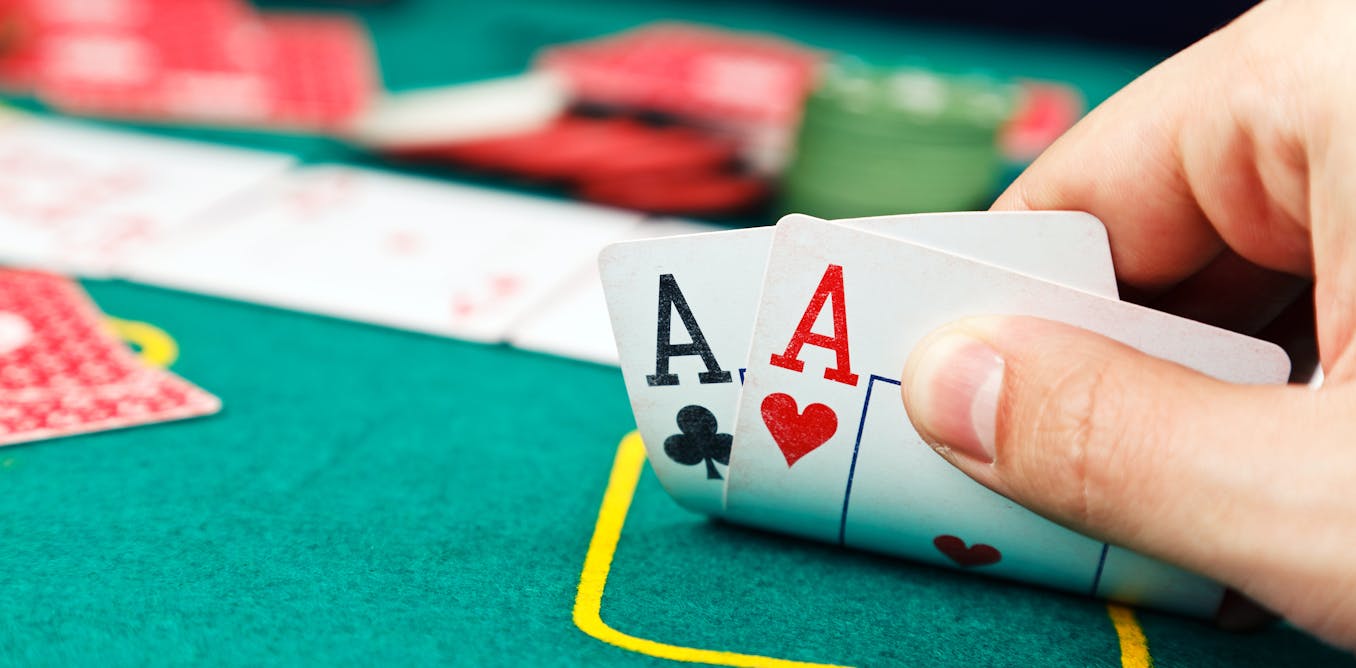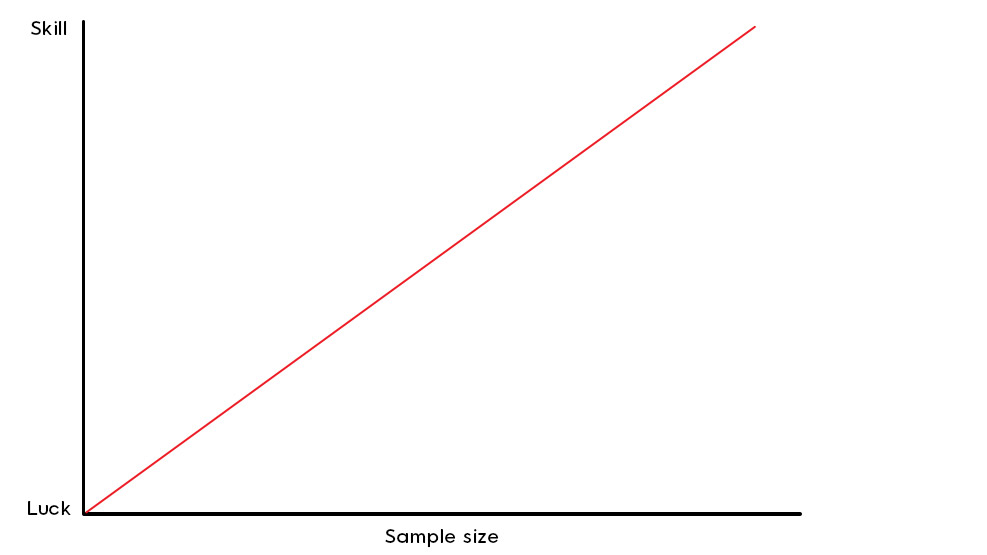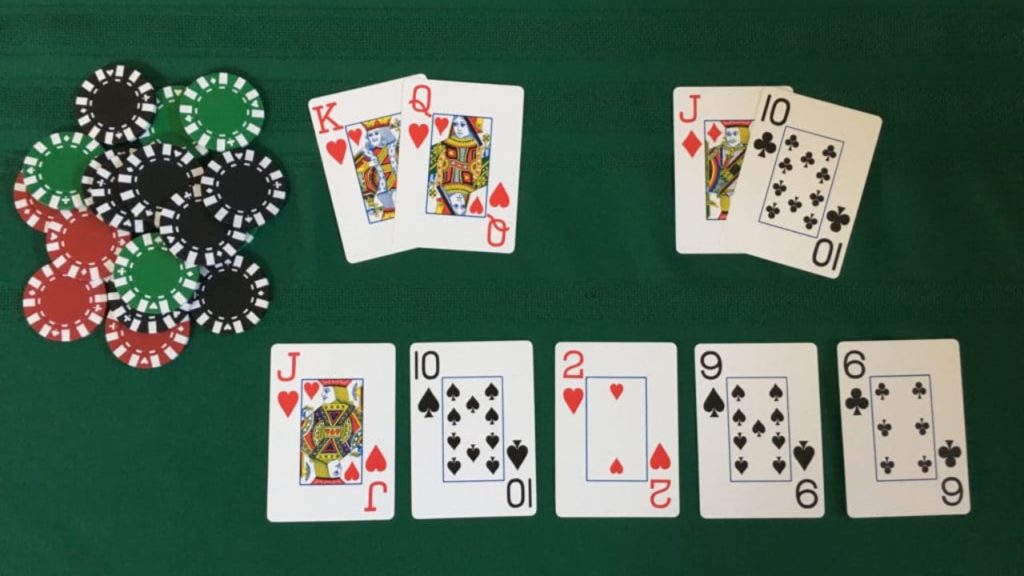Is Texas Holdem More Luck Or Skill
Of course it’s both, but the question is whether it is more one or the other – and the fact that a nearly unbeatable computer program can be developed clearly shows that skill is a major factor. In other words, poker becomes a game of skill after around 1,500 hands. To put this into perspective, most online players are likely to play 1,500 hands in 19 to 25 hours – and less than that if. The game has many variants, some more skill based. The most popular today is Texas Hold'em, but even that game is divided into cash tables (which offer continuous play, therefore lower variance), sit'n'go tournaments (which offer medium variance of results) and Multi Table Tournaments (which have the highest variance). The type of 'card counting' in poker really has more to do with reading what cards are out and the odds of you getting one you need. Then there's your place in rotation, pot risk/reward, and other things that go into it. Texas Holdem is my favorite card game. I play a few private cash games every month and do pretty decently.
One of the age old questions that lingers around poker is whether it is a game predominately of skill or luck. There is no denying that both skill and luck play significant parts of the game, but which is the dominant factor? This article will delve into the inner workings of Texas Holdem, compare the game to other variants such as Chess, and also compile quotes and insights from some of the world’s top poker players. DurrrrChallenge.com has been surprised at how divergent point of views are on this subject. From our experience, Texas Hold’em is clearly a mixture of both in the short term, and results are heavily weighted towards skill in the long term.
- Does Not Accept US Players
- Fast Cashouts
- $88 Free Bonus
- Established: 1997
The Insiders Comment
If you ask those deeply involved in poker, its top players and authors, they will argue that skill is by far the strongest factor.
Respected poker author David Sklansky has stated that good poker players “are at war with luck. They use their skills to minimize luck as much as possible.”
11-time WSOP bracelet winner Phil Hellmuth has infamously stated “If it weren’t for luck, I’d win every time.”
Poker Players Alliance Chairman Alfonse D’Amato and former New York Senator commented, “As a poker player, I can tell you that knowing when to hold or fold is not based solely on the cards that are dealt, but a series of decisions based on skill and the actions taken by other players. This study provides the raw data to back up the compelling arguments made by poker players around the world that it’s skill, not pure luck, that determines the outcome of this game.”
Scott Matusow, poker commentator and brother of Mike “The Mouth” Mouth Matusow, asserts that your perspective and approach to your game determines if poker is predominately a game of skill or luck. If you approach the game as a vocation that you apply yourself at, studying, disciplined and structured playing and observing strict bankroll management, you are bound to see that skill wins out in the end. If you are the casual player who likes the action, taking risks, gets emotional with wins and losses and rarely follows the recommended percentages or bankroll management, they are likely to view poker as based mostly on luck. In the end, the player perceptions aren’t the determining factor of whether poker is a skill game or not. The skill level of a player doesn’t determine whether the game is a game of skill or not. It only helps to determine their relative results in that game of skill.
You Can’t Avoid Losing No Matter How Skillful You Are
No one will debate that there isn’t considerable luck involved in poker, especially in the short term. No one controls what cards will be dealt. No player can win every hand. No player is always dealt a good hand or knows when their good hand will face a better hand. All you can do is play the percentages. The skilled player attempts to take advantage of luck when it visits them and how to minimize the effects when it visits their opponents.
Some poker players love to point at a string of unfortunate bad beats as signs that poker is mostly luck. The reality is you’ll suffer more bad beats if you’re playing well, because by definition a good player will be getting their money in the pot with the percentages in their favor. They are most likely ahead, thus more likely to get outdrawn more times than a poorly skilled player who won’t be ahead as often and thus can’t suffer as many bad beats.
A big distinction between poker and pure gambling games is when gambling you are playing against “the house.” The Casino has statistical edges to all their games which means in the long term you are destined to lose. In poker, the house has no interest in the outcome, as they are an impartial provider of the services for a fee. They provide a forum for the players to compete equally against each other. One player will win at the expense of others. The rules of real money poker accord every player a statistically equal chance to win, unlike gambling.
David Sklansky’s favorite argument for skill being predominant in poker is to look at gambling games and losing. In pure gambling games of chance, like baccarat or roulette, it is impossible to intentionally lose. Each move has a similar chance. That is not the case in poker. Poker players contribute significantly towards their results by the actions they choose to make. If poker relied mainly on luck, most players would play to showdown and turn over their cards on the river to let luck decide the winner. There are some who argue that there is no actual luck in poker, as luck is random and doesn’t favor anyone long term so it’s a non factor, there are just mathematical fluctuations that in the long run approximate the correct probabilities for your play.
Is Texas Holdem More Luck Or Skill Skills
Studies
A Global Poker Strategic Thinking Society study demonstrated clearly that participants who were given instructions and basic strategy advice outperformed those who were not instructed. It showed that players who selected their starting hands more carefully also fared better. Finally, the control group who received no prior instruction saw their results improve as time went on, showing that there was a learning by experience factor.
A Levitt and Miles study using date from 32,000 players who participated in the 57 2010 WSOP tournaments demonstrated that “previously classified ‘skilled’ players outperformed “unskilled” players by a large margin.” The “skilled” players achieved an average return on investment of over 30% while all others gain a negative 15% return on their results. Comparisons were made to skill and luck based accepted endeavours like stock investing.
In a 2009 Cigital study of 103 million hands of Hold’em played on PokerStars, it was shown that 75% of hands dealt never made it to showdown. Therefore the success of a hand depended more on players betting than on the cards they were dealt. The player with the best final hand rarely won the hand. Paco Hope, one of the studies’ authors stated “the same information is available to all players (the values of the cards), but it is skill in interpreting that information — not the presence of that information — that determines whether a player folds.”
The important caveat to all studies on the role of skill in poker is the length of time that you measure the results. In the short term, luck can overcome any skill you display, but over enough time, skill will always overwhelm luck in poker.

Poker vs. Chess or Financial Markets
Comparisons are made to chess or to the financial markets when comparing the skill element of poker. Poker is a game of incomplete information, whereas chess isn’t. In chess, it’s possible an unskilled player could get lucky for a move or two, but over the entire game, they can’t compete with a master player. Given enough time, the same would happen in poker. A true amateur would stand no chance long term against a top professional poker player.
As for the financial markets, there are numerous parallels with poker. Brokers look for edges to exploit, but the unpredictability of the markets can easily undermine prudent decisions. It’s said “the market can remain irrational longer than you can remain solvent” so even high percentage plays can fail. In the long run, the amateur is going to make too many low percentage plays and go broke.
Why Poker Is Popular
Much of the popularity of poker is due to the wonderful combination of luck and skill. If it were solely a game of skill, the inexperienced wouldn’t play because they would lose every time. If it were too much about luck, the professional players would give up. With the current balance of luck and skill in poker, on any given day anyone can win a tournament, but over time the skillful players will come out on top. Over time luck evens out and the skill difference will prevail. It is the psychological ramifications of how we deal with the skill and luck components that can prove challenging for many players.
Poker constantly puts you to decisions (e.g. bet or check, raise or fold) that require skill to navigate effectively. Each of your decisions impact your ability to win a hand or session. The fact that there are many levels of success in the game only goes to prove that their different skill levels influence their results long term.
Any player worth a pair of deuces will tell you that poker is a game of skill. In the words of Lancey Howard, the unbeatable master in classic film The Cincinnati Kid, it’s all about “making the wrong move at the right time” – a snippet of wisdom he delivers after beating the Kid’s full house with a straight flush, a combination of hands with odds that have since been calculated to be in excess of 20-million-to-one.

Chris Moneymaker, winner of the 2003 World Series of Poker Main Event and surely the greatest example of nominative determinism in the game, once remarked:
The beautiful thing about poker is that everybody thinks they can play.
And he’s right.
Online poker rooms, which in 2013 alone generated an estimated £2.8 billion in gross winnings globally, attract millions of beginners whose assessment of their own abilities bears little relation to reality.


Naturally, there has never been any doubt that luck plays a part. The aforementioned greenhorns wouldn’t hang around for long if it didn’t. Equally, it would be bizarre to deny that at least some measure of skill must be involved – otherwise why would some competitors win more consistently than their rivals?
Chance vs skill
But the key question is whether one element dominates the other. The reasoning is simple enough: if chance dominates skill then poker is a game of chance, and if skill dominates chance then poker is a game of skill. This is what I set out to determine in research recently published in PLOS One, with colleagues Rogier Potter van Loon at the Erasmus University Rotterdam and Martijn van den Assem at VU University Amsterdam.
Drawing on a database of 456m player-hand observations from a year’s worth of online games, we first investigated how consistent player performance was. This revealed substantial evidence of the role of skill in successful play.

For instance, players who ranked in the best-performing 10% in the first six months of the year were more than twice as likely as others to do similarly well in the next six months. And, players who finished in the best-performing 1% in the first half of the year were 12 times more likely than others to repeat the feat in the second half. Meanwhile, players who fared badly from the start continued to lose and hardly ever metamorphosed into top performers.
The point here is that performance is predictable. In a game of chance there would be no correlation in the winnings of players across successive periods, whereas there would be in a game of skill. So we know for sure that poker can’t be a game of pure chance.
The tipping point
But that still leaves the crucial question of whether skill dominates chance. To examine this we ran simulations comparing the performance of skilled and unskilled players. We found the tipping point: skilled players can expect to do better than their relatively unskilled counterparts at least three quarters of the time after 1,471 hands have been played.
In other words, poker becomes a game of skill after around 1,500 hands. To put this into perspective, most online players are likely to play 1,500 hands in 19 to 25 hours – and less than that if they play multiple tables at the same time.
Of course, devoted players everywhere might feel inclined to celebrate this revelation. They can bask in the satisfaction of knowing the game they love demands and rewards genuine proficiency and that in the end talent and guile will usually triumph over blind luck.
Legal implications
But the issue is about more than validation and bragging rights. You might well wonder why researchers are spending their time formulating equations rooted in the myriad complexities of Texas Hold ‘Em. The reason? Whether poker is viewed as a game of chance or a game of skill has potentially major legal implications.
Doubts surrounding poker’s claim to being a game of skill have shaped legislation for years. Players in the UK currently pay no tax on their winnings, which is good news for everyone from the most modest online tyro to the likes of writer and TV presenter Victoria Coren Mitchell, whose career earnings on the professional circuit exceed £1.5m.
Is Texas Holdem More Luck Or Skill Guide
In some countries what are perceived to be games of chance are subject to much tougher jurisdiction: in most US states, for example, online poker has been essentially illegal since the passing of the 2006 Unlawful Internet Gambling Enforcement Act.
All of this could change if policymakers take heed of these findings that show the opposite. Even without them, the American legal system has already argued the case several times over, with judgements upheld, overturned and upheld again. Perhaps fittingly, there’s an awful lot of money at stake and we can expect the debate to rumble on, as new evidence comes to light.